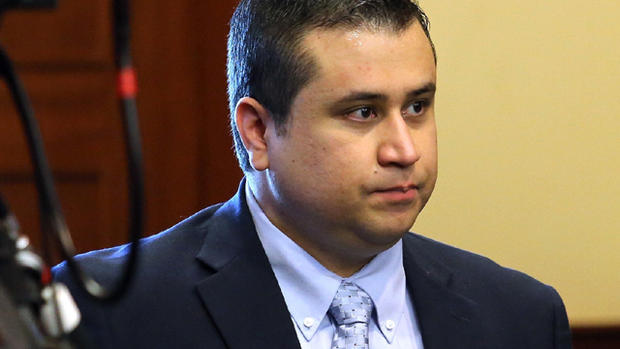George Zimmerman trial prosecutors attempt to insinuate racial profiling, expert says
(CBS News) The judge in the George Zimmerman murder trial ruled in June that the term "profiling" can be used in the case, but not as it relates to race. However, as one expert explained on "CBS This Morning," the prosecution did its best in its closing argument on Thursday to insinuate racial profiling on the part of Zimmerman in the killing of 17-year-old Trayvon Martin last year.
The racial component was most directly referenced by the prosecution in its emotional rewording of a line from the famous Dr. Martin Luther King Jr. "I Have a Dream" speech.
George Zimmerman trial: Prosecutor blasts Zimmerman's self-defense claim during closing arguments
Special Section: George Zimmerman Trial and Trayvon Martin Case
Watch Mark Strassmann's full report on the murder trial from Sanford, Fla., in the video below.
CBS News legal analyst Jack Ford said, "The prosecution is focused on the word profiling because they're trying to insinuate clearly to the jury that the reason why Trayvon Martin was stalked here was he was committing, according to prosecutors, the crime of being a young black man with a hooded sweatshirt in a nice neighborhood. So the prosecution - without using the term racial - has tried to suggest to the jury that that's exactly why this all happened.
Referencing the prosecution star witness, Trayvon Martin's friend, Rachel Jeantel, the prosecution said, "'I have a dream that some day a witness won't be judged by the color of their personality but by rather the content of their testimony.' It's an interesting suggestion about a witness, but it's certainly insinuating, once again, in this case there was a notion of a racial component to this murder," Ford said.
The prosecution's overall closing argument was emotional, a kind of role-reversal for the prosecution and defense, Ford said, adding, "The prosecution is being emotional, the way you sometimes see the defense when the defense doesn't have a real affirmative defense but is simply arguing a prosecution hasn't proved a case.
Ford continued, "You saw emotion, you saw emotionally charged testimony inside the courtroom and then the prosecution, pointing his finger at George Zimmerman and saying, 'Do you really believe this is really an innocent man here?' I think they did the best they could here, but they recognize that it is indeed an uphill battle here for murder two in the courtroom."
Zimmerman, a former neighborhood watch volunteer, has pleaded not guilty to second-degree murder. He claims that Martin attacked him and he shot him in self-defense.
The judge has ruled the jury will be able to consider manslaughter in this case. Turning to that decision, Ford said, "It could be a problem for the defense, but it also recognizes that the prosecution realizes they've got a bit of a problem with their case. They've said all along that proving second-degree murder, that George Zimmerman intentionally killed Trayvon Martin based upon ill will or hatred, was not impossible, but it was going to be a difficult chore for the prosecution. Here they've stepped in and they said to the judge, 'Give us this lesser-included offense of manslaughter.'"
Manslaughter, Ford explained, means not that a person intended to kill anybody, but through reckless conduct somebody died. He said, "Often, you see the defense asking for lesser-included offenses, getting jurors off of the top count and focus on something less. Here, the prosecution wants the jury, in case they are not convinced of murder two, to be willing to look at this. If you're the defense attorney, you want to sort of roll the dice here. They wanted to say murder or nothing, so I'm sure they're not at all happy about giving the jurors an opportunity to compromise somewhere in between there."
For more with Ford on the Zimmerman case, watch the video at the top of this article.
